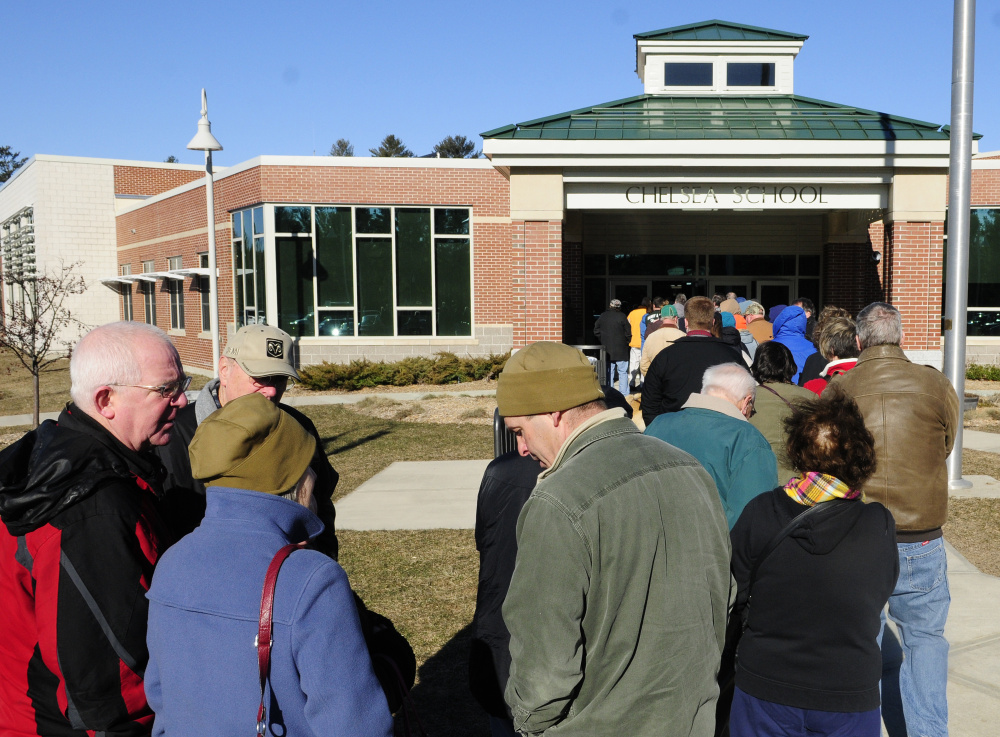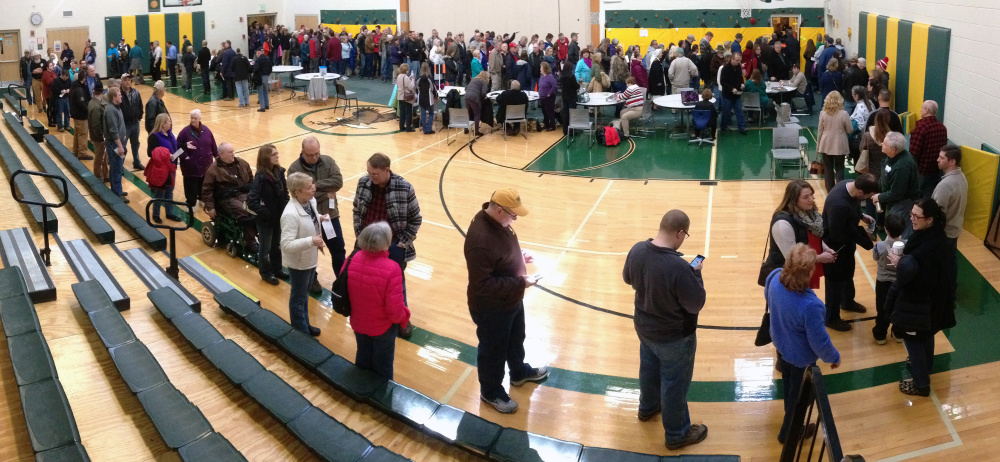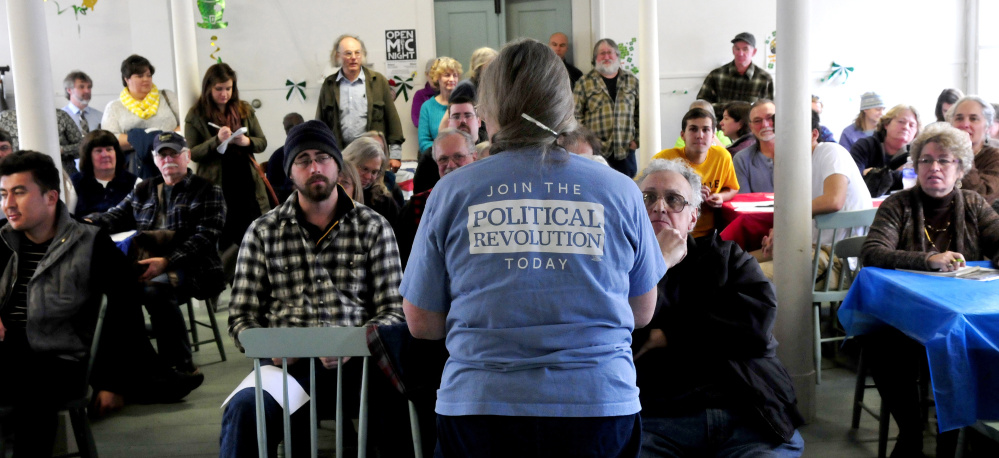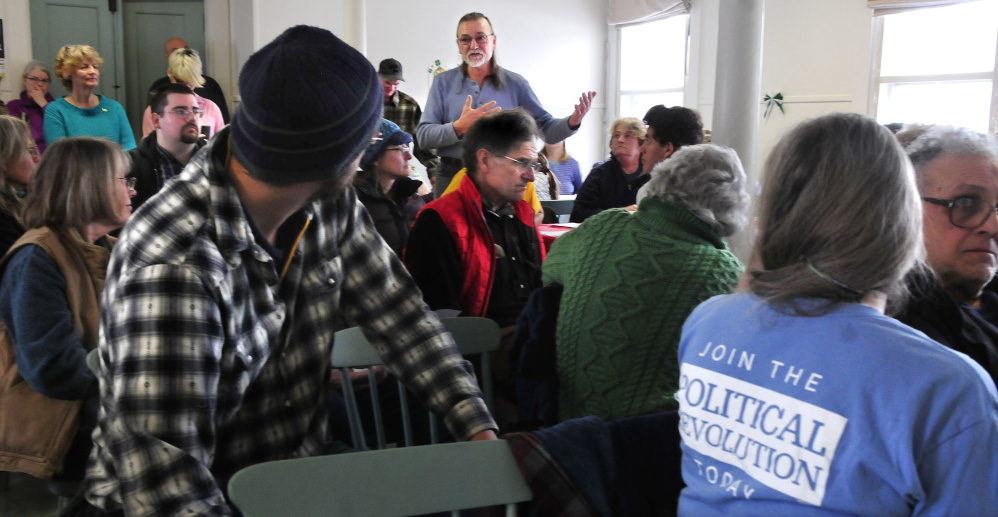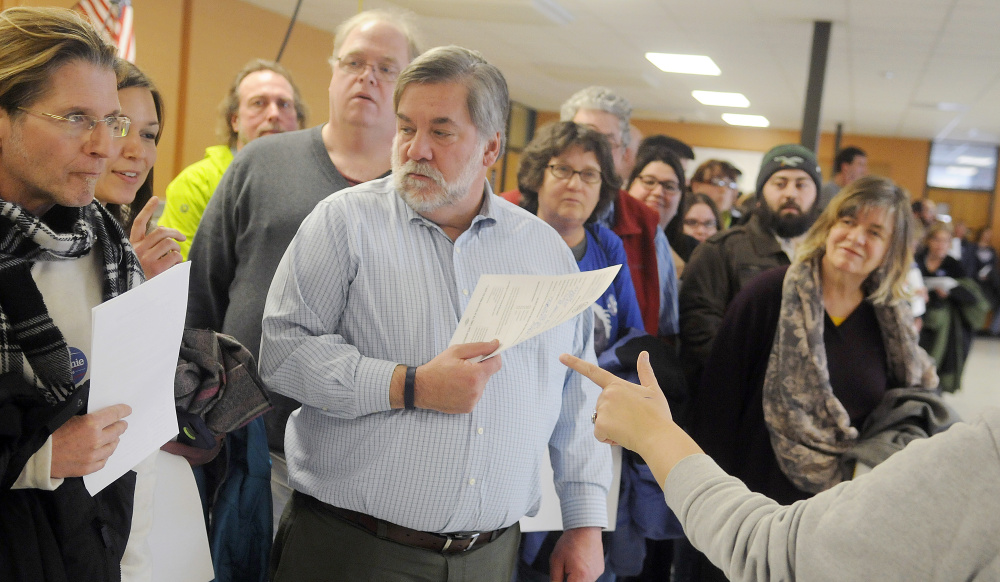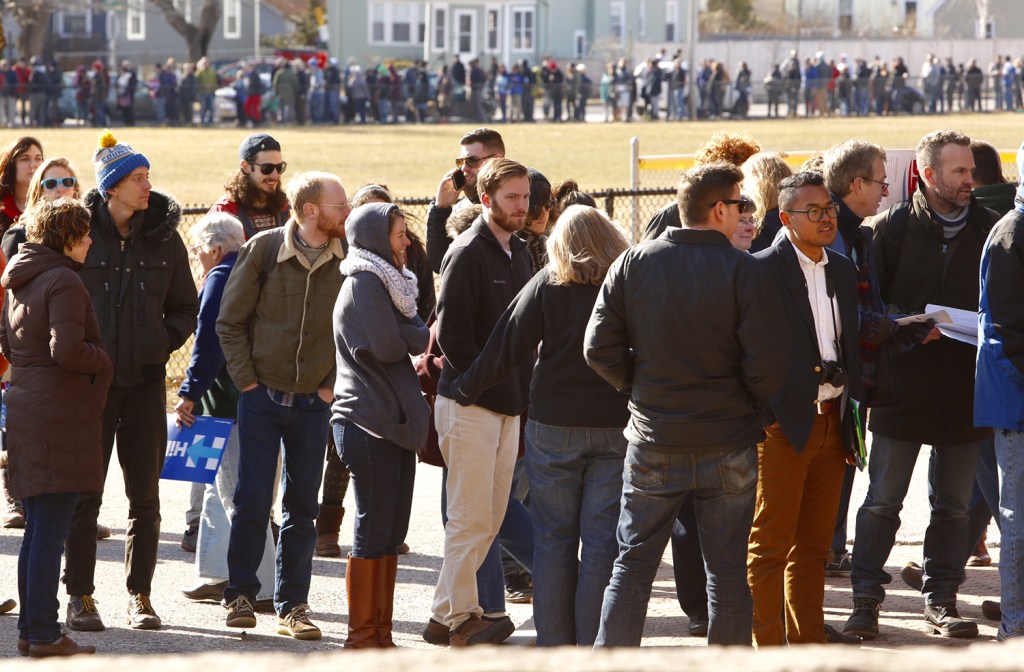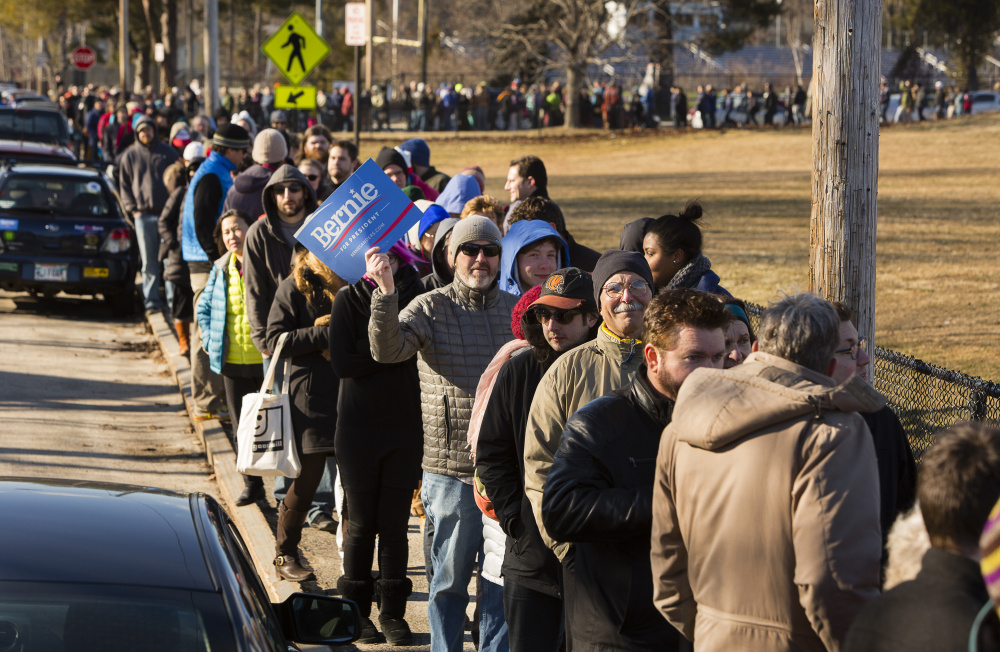AUGUSTA — A bipartisan group of legislative leaders expressed support Monday for switching back to presidential primary elections in Maine after record voter turnout led to lengthy delays at some caucus locations over the weekend.
Senate Minority Leader Justin Alfond, D-Portland, renewed the caucuses-versus-primaries debate one day after unprecedented turnout forced Portland’s Democratic leaders to accept thousands of absentee ballots rather than require participants to attend traditional caucus meetings. Many left without voting, either unable or unwilling to wait up to four hours in a line that stretched a half-mile outside Deering High School.
While Alfond acknowledged that town meeting-style caucuses have advantages, he said a primary format is preferable during presidential-election years because voters cast ballots throughout the day rather than congregate for an hours-long meeting.
“We need to do it more efficiently,” Alfond said Monday. “We can’t have a system that turns away voters, and that’s what (happened) yesterday and Saturday.”
Alfond quickly picked up bipartisan support from several legislative leaders – support that will be critical if they hope to shepherd a primary election bill through the Legislature in the final weeks of the session.
“Let’s not drop the ball and let’s not turn this into a political football. This isn’t Republican or Democratic,” said Senate President Mike Thibodeau, R-Winterport. “This is about making sure that people have the opportunity to cast their ballot. The primary process is a much easier process for them to be able to do that.”
Alfond said Gov. Paul LePage told him he is also on board with the idea. Although LePage’s spokeswoman could not confirm that Monday, the Republican governor had supported a 2012 bill to switch Maine to a presidential primary.
Maine is among the minority of states that hold presidential caucuses, where party faithful gather in town halls, schools or community centers for meetings that typically last several hours. Most states follow the primary model in which voters cast secret ballots, like in a general election.
Primaries often draw more participants, and that was true in 1996 and 2000, when Maine experimented with presidential primaries.
The Maine Republican Party reported more than 18,000 participants in Saturday’s caucuses, and the Maine Democratic Party reported more than 46,000 participants on Sunday.
Those figures, however, are well shy of voter turnout during Maine’s 1996 and 2000 presidential primaries. The Republican primary drew 67,280 voters in 1996, and 96,624 in 2000. The Democratic turnout was 27,027 in 1996 – a re-election year for President Bill Clinton – and 64,279 in 2000.
But in 2003, the Legislature approved a bill switching back to caucuses largely at the behest of the political parties, which view caucuses as valuable organizational and voter engagement events. Legislative records show that no one testified against the bill in committee.
Colby College government professor L. Sandy Maisel, a veteran Maine political observer, said caucuses tend to draw party loyalists and those heavily involved in issues because the meetings go on for several hours.
“It’s level of commitment versus just showing up to vote,” Maisel said. “The second difference is that caucuses are paid for by the parties and primaries are paid for by the state.”
The 1996 and 2000 presidential primaries cost the state $17,204 and $28,167, respectively, after accounting for revenues generated by the $2,500 filing fee assessed on each candidate, according to 2003 testimony from the Secretary of State’s Office.
Spokeswoman Kristen Muszynski said Monday that officials in the Secretary of State’s Office estimate that primaries would likely cost at least $75,000 to operate today.
Alfond and Thibodeau said cost would be one of the issues discussed in a legislative committee if the primary bill gets approved to proceed.
“I think any time we can have (more) voter participation, most people would see that as a good investment of taxpayer money,” Thibodeau said. “That’s why I support the idea. We’ll see if we can’t get something done.”
Maine Democratic Party Chairman Phil Bartlett did not endorse the primary proposal, but didn’t shut the door on it, either.
“We are certainly interested in engaging in a discussion with Senator Alfond and the Portland delegation, but also with our members statewide about how best to proceed,” Bartlett said Monday afternoon. The vast majority of Democratic caucuses around the state ran smoothly despite higher turnout, he said.
“Caucuses, as you saw in Portland, can be a real challenge,” Bartlett said. “But on the other hand, statewide hundreds of caucuses happened where people were very excited.”
Maine’s Republican and Democratic parties followed very different caucus models over the weekend.
After an embarrassing and high-profile dust-up over who won the 2012 party caucuses, the Maine Republican Party changed its format this year to allow participants to cast secret ballots without participating in the full caucus program. The party also consolidated the caucus meetings into 22 locations. Democrats, by comparison, held 533 caucuses at more than 400 locations Sunday.
Former Senate President Kevin Raye, R-Perry, introduced a presidential primary bill in 2012 after his party’s controversial caucuses. The bill was watered down during the legislative process, however, to order lawmakers on the Veterans and Legal Affairs Committee to examine the issue and report back to the full Legislature.
Committee members failed to reach consensus. While some members said it was not a priority for their constituents, others “questioned the timing of such a proposal, stating that the next presidential election is four years from now and that there will be time during the course of the upcoming legislative sessions to consider primary proposals,” the written report said.
Ultimately, the majority of committee members voted not to craft a primary elections bill for consideration in the Legislature.
The political tide may be changing, however.
Two top Democratic leaders in the Maine House signaled their potential support for primaries, while the Republican leader in the House, Rep. Kenneth Fredette of Newport, said he would sign on to Alfond’s bill.
“I’m willing to co-sponsor Sen. Alfond’s bill because I believe we need to have a conversation about how to get more people involved in the process of nominating our presidential candidates,” Fredette said in a written statement. “Making Maine a primary state could be a way to accomplish that goal.”
Although the next presidential nominating process is four years away, Alfond said he believes “timing is of the essence” given the frustrations that voters expressed about the delays during the weekend caucuses.
“I think we should do it now so that we take out any of the mystery of what’s happening in four years,” Alfond said. “If it doesn’t happen, then the discussion is equally important.”
Kevin Miller can be contacted at 791-6312 or at:
Twitter: KevinMillerPPH
Send questions/comments to the editors.


